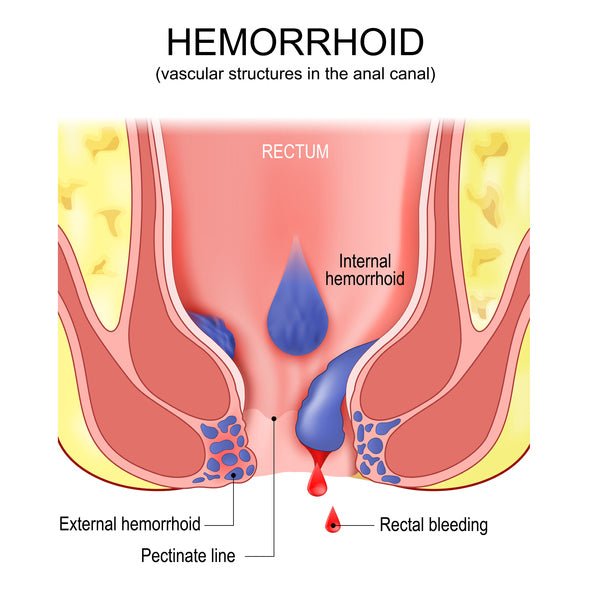Hemorrhoids are swollen veins in the anus and lower rectum. They are a common problem, affecting about one in three people. Hemorrhoids can cause pain, itching, and bleeding.
What causes hemorrhoids?
Hemorrhoids are caused by a combination of factors, including:
- Increased pressure in the rectum, such as from constipation, pregnancy, or heavy lifting
- Weakness in the veins in the rectum
- A family history of hemorrhoids
What are the symptoms of hemorrhoids?
The symptoms of hemorrhoids vary depending on the severity of the condition. Some common symptoms include:
- Pain
- Itching
- Bleeding
- A feeling of fullness in the rectum
How are hemorrhoids treated?
There are a number of ways to treat hemorrhoids, including:
- Over-the-counter medications, such as creams and suppositories
- Home remedies, such as sitz baths and ice packs
- Medical procedures, such as banding or hemorrhoidectomy
Over-the-counter medications
Over-the-counter medications for hemorrhoids include:
- Suppositories: Suppositories are small, solid medications that are inserted into the rectum. They contain ingredients that help to shrink the veins and relieve inflammation.
- Creams: Creams are applied to the rectum and anus. They contain ingredients that help to soothe the skin and relieve irritation.
- Gels: Gels are applied to the rectum and anus. They contain ingredients that help to lubricate the skin and reduce friction.

Home remedies
Home remedies for hemorrhoids include:
- Sitz baths: Sitz baths are a type of bath that is taken while sitting in warm water. They help to soothe the skin and relieve inflammation.
- Ice packs: Ice packs are applied to the rectum and anus. They help to reduce swelling and pain.
- Witch hazel: Witch hazel is a natural astringent that can be applied to the rectum and anus. It helps to reduce swelling and irritation.
- Aloe vera: Aloe vera is a natural moisturizer that can be applied to the rectum and anus. It helps to soothe the skin and relieve irritation.
Medical procedures
Medical procedures for hemorrhoids include:
- Banding: Banding is a procedure that uses a rubber band to encircle the hemorrhoid and cut off its blood supply.
- Hemorrhoidectomy: Hemorrhoidectomy is a surgical procedure that removes the hemorrhoid.
How to choose the right treatment for your hemorrhoids
The best treatment for your hemorrhoids will depend on the severity of your condition and your preferences. If your hemorrhoids are mild, you may be able to treat them with over-the-counter medications or home remedies. If your hemorrhoids are more severe, you may need to see a doctor for medical treatment.
Surgical treatment
Surgical treatment for hemorrhoids is usually only recommended for people with severe hemorrhoids that do not respond to other treatments. The most common type of surgical treatment for hemorrhoids is hemorrhoidectomy. Hemorrhoidectomy is a minimally invasive procedure that can be performed in a doctor's office or hospital.
Risks of surgical treatment
The risks of surgical treatment for hemorrhoids include:
- Bleeding
- Infection
- Pain
- Swelling
- Problems with bowel movements
Recovery from surgical treatment
Recovery from surgical treatment for hemorrhoids usually takes about a week. During this time, you may experience some pain and swelling. You will also need to avoid straining during bowel movements.
Preventing hemorrhoids
There are a number of things you can do to prevent hemorrhoids, including:
- Eating a healthy diet
- Exercise regularly
- Maintain a healthy weight
- Avoid straining during bowel movements
- Use a bidet or wet wipes after you have a bowel movement
If you have hemorrhoids, there are a number of things you can do to relieve the pain and discomfort. Over-the-counter medications, home remedies, and medical procedures can all be effective in treating hemorrhoids.

